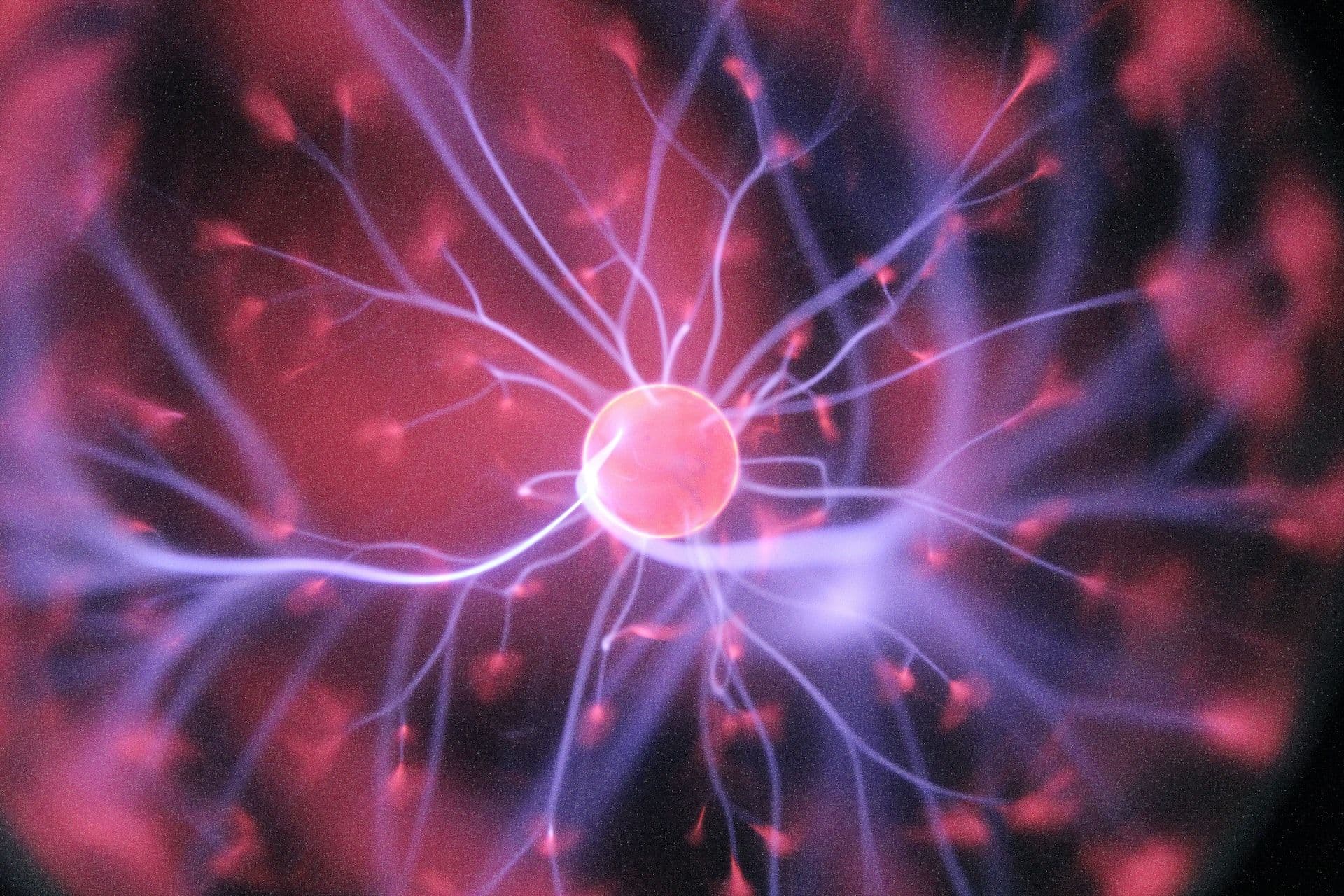
ENTP-A vs. ENTP-T: Personality Traits and Differences
Whether you tested as an ENTP-A or an ENTP-T, you’re probably wondering what the “A” or “T” at the end of your personality type means. After all, Visionaries are some of the most curious personality types, so it’s only natural to be looking for answers!
Well, if you don’t know what the difference between ENTP-A and ENTP-T personalities is, worry not—we’ve got you covered.
In this article, we’ll explain everything you need to know about the two ENTP personality subtypes, including:
- ENTP-A and ENTP-T Strengths and Weaknesses
- 5 Differences Between ENTP-A and ENTP-T Personalities
- ENTP-A and ENTP-T Best & Worst Career Paths
And more!
Comparing ENTP-A vs. ENTP-T Identities
In short, all people with the ENTP (Visionary) personality type fall into one of two identity subgroups:
- ENTP-A, which stands for assertive ENTP
- ENTP-T, which is also known as the turbulent ENTP personality
Assertiveness and turbulence essentially mark the individual’s degree of neuroticism. ENTP-As show a lower level of neuroticism than ENTP-Ts, who score higher on the neuroticism scale.
In other words, assertive ENTPs are less likely to experience negative emotions than turbulent ENTPs. Since emotions are an integral part of the human experience, ENTP-A and ENTP-T people also deal differently with stress, relationships, and other parts of their daily lives.
Still, their personalities are very similar, as ENTP-A and ENTP-T personalities use the same cognitive functions:
- Extraverted intuition (Ne)
- Introverted thinking (Ti)
- Extraverted feeling (Fe)
- Introverted sensing (Si)
Since ENTPs are naturally extroverted and confident, it is likely that most of them belong to the ENTP-A subtype.
In fact, it isn’t uncommon for turbulent ENTPs to get INTP as their personality test result, as they often appear more introverted than their assertive counterparts. Nonetheless, this doesn’t mean that turbulent Visionaries aren’t “real” ENTPs—they simply have a different way of experiencing and navigating the world.
ENTP-A and ENTP-T Strengths and Weaknesses
As you now know, assertive and turbulent ENTP personalities share the same cognitive functions and thus have similar personality traits. Still, they have distinct strengths and weaknesses that set them apart.
So, let’s learn more about ENTP-A and ENTP-T characters by exploring their strong and weak points!
ENTP-A Strengths and Weaknesses
To start with, here are some of the most prominent strengths that ENTP-A personalities possess:
- Individuality. Although ENTPs are independent by nature, ENTP-As tend to be more individualistic than ENTP-Ts. They usually shy away from tradition, embrace change, and prefer to live in line with their own rules regardless of what others think.
- Emotional stability. Since ENTP-A people aren’t emotional or sensitive, they rarely, if ever, lose their cool. Thanks to this, they easily handle criticism, heated debates, and other situations that make most people upset or uncomfortable.
- Tenacity. People with an ENTP-A personality aren’t phased by obstacles and hardships. Quite the contrary—many of them thrive in challenging situations and environments!
That said, these personalities also have some weak points, such as:
- Directness. Directness isn’t a character flaw in and of itself—in fact, it can be rather useful, especially in professional matters. However, just like ENTJ-As, ENTP-As can come off as abrasive due to their assertive and direct communication style.
- Impulsivity. Assertive ENTPs are open to experimenting, so it’s only natural that they aren’t afraid of taking risks. That said, their robust self-confidence can sometimes lead them to make impulsive decisions.
- Provocative nature. People with an ENTP personality type are often called "the devil’s advocates," as they are entertained by provoking people and challenging their opinions. ENTP-As in particular are guilty of winding people up just for the fun of it, as they aren’t that concerned with their feelings.
ENTP-T Strengths and Weaknesses
Meanwhile, ENTP-T personalities tend to show the following strengths:
- Openness to emotions. Like most people with thinking personality types, ENTPs aren’t great at dealing with emotions. Rather than embracing them, they tend to detach and ignore them. Still, ENTP-T personalities tend to be more in touch with their feelings than ENFP-As.
- Ability to adjust to others. ENTP-Ts tend to have better control of Fe, their tertiary cognitive function,than ENTP-As. This can help turbulent ENTPs tweak their communication style to a particular situation, preventing them from coming across as harsh or insensitive.
- Willingness to grow. Unlike ENTP-As, ENTP-Ts can be rather self-critical, so they’re usually aware of their flaws and weaknesses. While this can affect their self-confidence, the good news is that most of them strive to overcome their shortcomings!
Despite their assets, ENTP-Ts have some limitations, including:
- Emotional reactivity. Because they are more tuned in to their feelings than ENTP-As, ENTP-Ts are susceptible to negative emotions and prone to emotional reactivity. Jealousy, irritability, and anger are just a few feelings that turbulent ENTPs have to deal with from time to time.
- Lower stress tolerance. While ENTP-As believe in their ability to handle anything that comes their way, this isn’t the case with ENTP-Ts. These personalities find it difficult to deal effectively with stress and often look for ways to avoid it in the first place.
- Lack of perseverance. When things go wrong, turbulent ENTPs’ self-esteem takes a hit, as people with this personality type are no strangers to self-blame. Unfortunately, this can destroy their enthusiasm and motivation. Instead of going after their goals, many ENTP-Ts jump from one activity to the next once things don’t go their way.
5 Differences Between ENTP-A and ENTP-T Personalities
By now, you should know not only what ENTP-A and ENTP-T mean but also what unique strengths and weaknesses people with these identities possess. Congratulations—you’re ready to delve into their specific differences in real-life situations!
So, let’s see how turbulent and assertive ENTPs differ in relationships, friendships, workplace environments, and more.
#1. ENTP-A vs. ENTP-T Self-Confidence
Although ENTPs are usually confident, ENTP-A personalities are significantly more self-assured than ENTP-Ts.
Assertive ENTPs have a strong internal locus of control, which helps them take matters into their own hands. They are aware of their strengths and know how to utilize them, so nothing seems off-limits to them. Positive and bold, they don’t fear taking risks and encountering challenges along the way.
ENTP-Ts, meanwhile, are less optimistic than assertive ENTPs. Although they are more confident than other turbulent personalities, such as INFP-Ts, they still deal with self-doubt, insecurities, and a fear of failure.
Both ENTP-A and ENTP-T personalities have high expectations for themselves, but ENTP-As trust themselves more to meet them. If necessary, they don’t hesitate to ask others for help, unlike ENTP-Ts, who don’t want to come across as incompetent or weak. Needless to say, ENTP-As care less about other people’s opinions than ENTP-Ts.
In short, assertive Visionaries (ENTP-A) have a positive self-image and thus aren't likely to seek other people's approval. Turbulent Visionaries (ENTP-T), meanwhile, tend to crave validation and thus react more sensitively to negative feedback.
#2. ENTP-A vs. ENTP-T Under Stress
Generally speaking, ENTPs are laid-back individuals, but this doesn’t mean that they are immune to stress.
Given that ENTP-A personalities are more positive and self-assured, it shouldn’t be surprising that they are generally better at managing stress. They are also less likely to avoid it, as many of them find that it helps them concentrate and achieve better results.
Turbulent ENTPs, on the other hand, rarely find stress beneficial. While they can handle it better than most other personality types, their lack of self-confidence makes them less resilient to stress than assertive ENTPs. Because of this, ENTP-Ts tend to go the extra mile to prevent stressful situations.
However, both ENTP-A and ENTP-T subtypes can become impatient, indecisive, and irritable under immense stress. Still, turbulent ENTPs usually reach their stress threshold quicker than assertive ENTPs.
#3. ENTP-A vs. ENTP-T in Relationships
In relationships, both ENTP-A and ENTP-T people appreciate spontaneity and excitement. They seek intellectual partners who won’t tie them down. For this reason, they are more compatible with personality types that respect their independence, such as INTJs. Moreover, they rarely stay in relationships that are dull and predictable.
That said, although ENTP-A and ENTP-T personalities in relationships are fairly similar, they approach emotions differently.
While neither personality type enjoys talking about their feelings, ENTP-T individuals are typically more open to discussing them than ENTP-As. Since they are prone to overthinking, turbulent ENTPs may also need their partners to reassure them more frequently. ENTP-As, meanwhile, may appear emotionally distant, as they prefer to keep their feelings to themselves.
#4. ENTP-A vs. ENTP-T in Friendships
As extroverts, ENTP-A and ENTP-T personalities are very social, though turbulent ENTPs often require more alone time than their assertive counterparts. Still, both personalities like to surround themselves with people who match their mental agility and sense of humor.
ENTPs love a good debate, and this is true for both subtypes. Neither of them can imagine a fulfilling friendship without intellectual discussions, even if they sometimes lead to arguments. That said, ENTP-T personalities are less likely to push their friends’ buttons than ENTP-As, although both enjoy light-hearted banter.
#5. ENTP-A vs. ENTP-T in the Workplace
Both ENTP subtypes thrive in creative, flexible, and collaborative work environments that enable them to generate and share their ideas. However, although ENTP-A and ENTP-T personalities generally behave similarly in the workplace, they show some subtle differences.
As a general rule, assertive ENTPs are more likely to seek leadership positions than ENTP-Ts. Besides being confident in their abilities to lead and manage people, they are also willing to take risks and try innovative leadership approaches.
ENTP-Ts, meanwhile, often question their ideas, decisions, and abilities, preferring to discuss them with others. Because of this, they often prefer to work as part of a team and can feel uncomfortable in leadership roles.
ENTP-A and ENTP-T Best & Worst Career Paths
Thanks to having different strengths and weaknesses, ENTP-A and ENTP-T people excel in different careers. Still, one thing remains true for both of these identities—they can’t stand monotonous jobs and overly organized work environments.
With that in mind, let’s take a look at the most and least suitable careers for ENTP-A and ENTP-T personalities!
ENTP-A Careers
Generally, ENTPs should choose a career path that:
- Helps them foster their creativity
- Allows them to use and improve their communication skills
- Enables them to manage their time
While this applies to pretty much all ENTPs, ENTP-As particularly excel in jobs that require them to use their leadership and problem-solving abilities. For this reason, they usually make excellent:
- Entrepreneurs
- Marketing Managers
- Engineers
- Stock Traders
- Lawyers
- Business Consultants
- Financial Analysts
- Economists
- Film Producers
- Detectives
That said, assertive ENTPs don’t typically enjoy repetitive jobs, especially those that require attention to detail or emotional resources. Because of this, they rarely work as:
- Mental Health Counselors
- Bookkeepers
- Pharmacists
- Data Entry Specialists
- Social Workers
ENTP-T Careers
While ENTP-T personalities can and do excel in the above-mentioned careers that are suitable for assertive ENTPs, they prefer less stressful work environments. While they make great assets to any team, they often choose jobs that allow them to work independently.
Most commonly, ENTP-T personalities pursue careers as:
- Architects
- Graphic Designers
- Psychologists
- Engineers
- Web Developers
- Software Developers
- Life Coaches
- Journalists
- Editors
- Technical Writers
Like assertive ENTPs, ENTP-Ts can become drained and stressed out in detail-oriented, monotonous roles. As such, they should steer clear of the following jobs:
- Accountant
- Bank Teller
- Call Center Operator
- Medical Assistant
- Dentist
3 Personal Development Tips for ENTP-A Personalities
Are you an ENTP-A looking to become a better version of yourself? You’re in luck!
Here are three tips you might find useful:
- To improve your relationships, don’t ignore people’s emotional needs and make an effort to attend to them.
- Curb your impulsivity by learning to think twice before making a decision.
- To boost your personal growth, take time to self-reflect and acknowledge your weaknesses, mistakes, and flaws.
3 Personal Development Tips for ENTP-T Personalities
If you’re an ENTP-T, consider following these tips to make the most of your strengths and overcome your personality weaknesses:
- Whenever you face setbacks in your personal or professional life, avoid giving up and make it a point to follow through.
- To prevent emotional outbursts, work on your emotional regulation skills.
- Instead of blaming yourself for anything that goes wrong, take a step back to see the big picture and identify what you could do differently next time to get a better outcome.
Key Takeaways
Hopefully, this article helped you understand what makes assertive and turbulent ENTPs different.
Before you go, let’s reiterate the key points and differences between ENTP-A and ENTP-T personalities we’ve covered:
- ENTP-A and ENTP-T are two different identities of the ENTP personality type, which means that they have more similarities than differences.
- ENTP-A people tend to be persistent, individualistic, and emotionally stable, but they can be insensitive to other people’s feelings.
- ENTP-T personalities are more prone to stress and negative emotions than ENTP-As, but they’re also more emotionally open with others.
- Assertive Visionaries (ENTP-A) are more confident in themselves and rely less on other people's opinions, while turbulent Visionaries (ENTP-T) tend to struggle with negative self-image and often seek other people's approval.
ENTP-A vs. ENTP-T FAQ
#1. How rare is ENTP-T?
ENTPs are some of the rarest personality types, as they are thought to make up only 3–5% of the population. Since most ENTPs tend to be assertive by nature, it's safe to say that the ENTP-T subtype is even less common.
#2. How rare is ENTP-A?
The ENTP-A subtype is likely more common among ENTPs, as they are usually self-confident, stress-resistant individuals. Still, assertive ENTPs are quite rare, given that the ENTP personality type is believed to occur in less than 5% of the general population.
#3. Do ENTPs have anxiety?
Since ENTPs have active minds and imaginations, some of them regularly feel anxious. Turbulent ENTPs are especially prone to anxiety, as they often experience self-doubt and struggle with stress management.



















